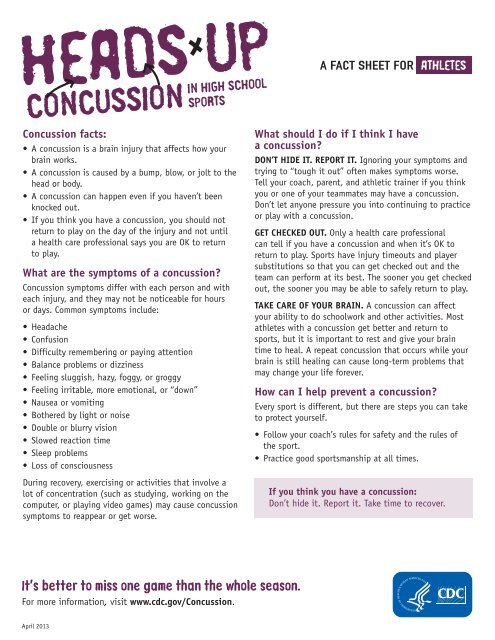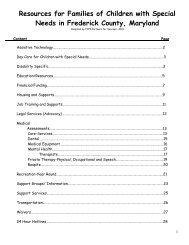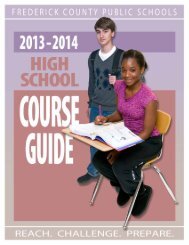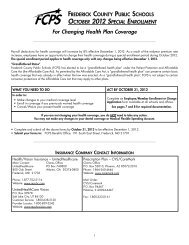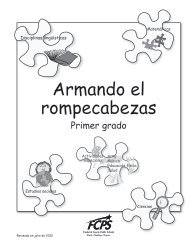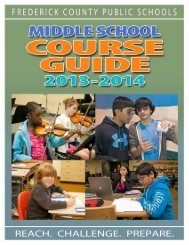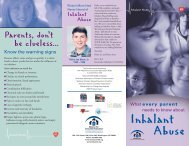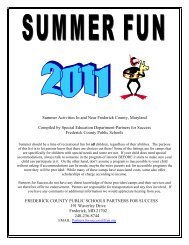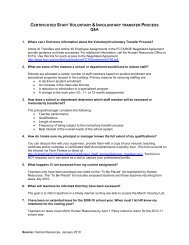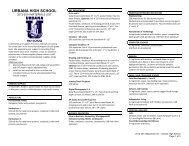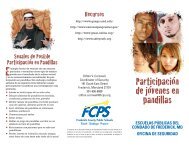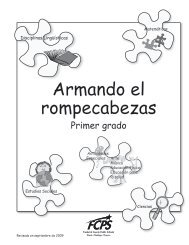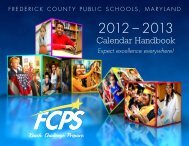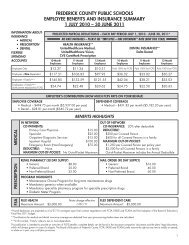Concussion Fact Sheets
Concussion Fact Sheets
Concussion Fact Sheets
You also want an ePaper? Increase the reach of your titles
YUMPU automatically turns print PDFs into web optimized ePapers that Google loves.
<strong>Concussion</strong> facts:<br />
•<br />
•<br />
•<br />
•<br />
<br />
A concussion is a brain injury that affects how your<br />
brain works.<br />
A concussion is caused by a bump, blow, or jolt to the<br />
head or body.<br />
A concussion can happen even if you haven’t been<br />
knocked out.<br />
If you think you have a concussion, you should not<br />
return to play on the day of the injury and not until<br />
a health care professional says you are OK to return<br />
to play.<br />
What are the symptoms of a concussion?<br />
<strong>Concussion</strong> symptoms differ with each person and with<br />
each injury, and they may not be noticeable for hours<br />
or days. Common symptoms include:<br />
•<br />
•<br />
•<br />
•<br />
•<br />
•<br />
•<br />
•<br />
•<br />
•<br />
•<br />
•<br />
Headache<br />
Confusion<br />
Difficulty remembering or paying attention<br />
Balance problems or dizziness<br />
Feeling sluggish, hazy, foggy, or groggy<br />
Feeling irritable, more emotional, or “down”<br />
Nausea or vomiting<br />
Bothered by light or noise<br />
Double or blurry vision<br />
Slowed reaction time<br />
Sleep problems<br />
Loss of consciousness<br />
During recovery, exercising or activities that involve a<br />
lot of concentration (such as studying, working on the<br />
computer, or playing video games) may cause concussion<br />
symptoms to reappear or get worse.<br />
It’s better to miss one game than the whole season.<br />
For more information, visit www.cdc.gov/<strong>Concussion</strong>.<br />
April 2013<br />
<br />
What should I do if I think I have<br />
a concussion?<br />
DON’T HIDE IT. REPORT IT. Ignoring your symptoms and<br />
trying to “tough it out” often makes symptoms worse.<br />
Tell your coach, parent, and athletic trainer if you think<br />
you or one of your teammates may have a concussion.<br />
Don’t let anyone pressure you into continuing to practice<br />
or play with a concussion.<br />
GET CHECKED OUT. Only a health care professional<br />
can tell if you have a concussion and when it’s OK to<br />
return to play. Sports have injury timeouts and player<br />
substitutions so that you can get checked out and the<br />
team can perform at its best. The sooner you get checked<br />
out, the sooner you may be able to safely return to play.<br />
TAKE CARE OF YOUR BRAIN. A concussion can affect<br />
your ability to do schoolwork and other activities. Most<br />
athletes with a concussion get better and return to<br />
sports, but it is important to rest and give your brain<br />
time to heal. A repeat concussion that occurs while your<br />
brain is still healing can cause long-term problems that<br />
may change your life forever.<br />
How can I help prevent a concussion?<br />
Every sport is different, but there are steps you can take<br />
to protect yourself.<br />
• Follow your coach’s rules for safety and the rules of<br />
the sport.<br />
• Practice good sportsmanship at all times.<br />
If you think you have a concussion:<br />
Don’t hide it. Report it. Take time to recover.
HEADS UP<br />
CONCUSSION<br />
What is a concussion?<br />
IN HIGH SCHOOL<br />
SPORTS<br />
A concussion is a type of traumatic brain injury. <strong>Concussion</strong>s<br />
are caused by a bump or blow to the head. Even a “ding,”<br />
“getting your bell rung,” or what seems to be a mild bump<br />
or blow to the head can be serious.<br />
You can’t see a concussion. Signs and symptoms of concussion<br />
can show up right after the injury or may not appear or be<br />
noticed until days or weeks after the injury. If your child<br />
reports any symptoms of concussion, or if you notice the<br />
symptoms yourself, seek medical attention right away.<br />
What are the signs and symptoms of a<br />
concussion?<br />
If your child has experienced a bump or blow to the head<br />
during a game or practice, look for any of the following<br />
signs of a concussion:<br />
SYMPTOMS REPORTED<br />
BY ATHLETE<br />
•<br />
•<br />
•<br />
•<br />
•<br />
•<br />
•<br />
•<br />
•<br />
•<br />
Headache or<br />
“pressure” in head<br />
Nausea or vomiting<br />
Balance problems or<br />
dizziness<br />
Double or blurry<br />
vision<br />
Sensitivity to light<br />
Sensitivity to noise<br />
Feeling sluggish,<br />
hazy, foggy, or<br />
groggy<br />
Concentration or<br />
memory problems<br />
Confusion<br />
Just “not feeling right”<br />
or “feeling down”<br />
SIGNS OBSERVED BY<br />
PARENTS/GUARDIANS<br />
• Appears dazed or<br />
stunned<br />
• Is confused about<br />
assignment or<br />
position<br />
• Forgets<br />
an<br />
instruction<br />
• Is unsure of game,<br />
score, or opponent<br />
• Moves clumsily<br />
• Answers questions<br />
slowly<br />
• Loses consciousness<br />
(even briefly)<br />
• Shows mood,<br />
behavior, or<br />
personality changes<br />
It’s better to miss one game than the whole season.<br />
For more information, visit www.cdc.gov/<strong>Concussion</strong>.<br />
April 2013<br />
A FACT SHEET FOR PARENTS<br />
How can you help your child prevent a<br />
concussion or other serious brain injury?<br />
•<br />
•<br />
•<br />
•<br />
Ensure that they follow their coach’s rules for safety and<br />
the rules of the sport.<br />
Encourage them to practice good sportsmanship at all times.<br />
Make sure they wear the right protective equipment for<br />
their activity. Protective equipment should fit properly<br />
and be well maintained.<br />
Wearing a helmet is a must to reduce the risk of a serious<br />
brain injury or skull fracture.<br />
– However, helmets are not designed to prevent<br />
concussions. There is no “concussion-proof” helmet.<br />
So, even with a helmet, it is important for kids and<br />
teens to avoid hits to the head.<br />
What should you do if you think your child<br />
has a concussion?<br />
SEEK MEDICAL ATTENTION RIGHT AWAY. A health care<br />
professional will be able to decide how serious the<br />
concussion is and when it is safe for your child to return to<br />
regular activities, including sports.<br />
KEEP YOUR CHILD OUT OF PLAY. <strong>Concussion</strong>s take time to<br />
heal. Don’t let your child return to play the day of the injury<br />
and until a health care professional says it’s OK. Children who<br />
return to play too soon—while the brain is still healing—<br />
risk a greater chance of having a repeat concussion. Repeat<br />
or later concussions can be very serious. They can cause<br />
permanent brain damage, affecting your child for a lifetime.<br />
TELL YOUR CHILD’S COACH ABOUT ANY PREVIOUS<br />
CONCUSSION. Coaches should know if your child had a<br />
previous concussion. Your child’s coach may not know about<br />
a concussion your child received in another sport or activity<br />
unless you tell the coach.<br />
If you think your teen has a concussion:<br />
Don’t assess it yourself. Take him/her out of play.<br />
Seek the advice of a health care professional.


